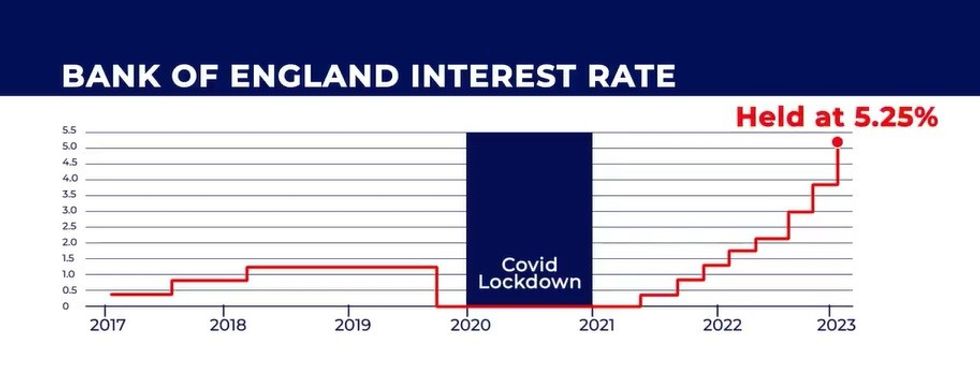‘Little-known rule’ leaves parents ‘sleepwalking’ into ‘surprise’ tax bill - there's a simple way to avoid it

Parents saving for their child’s future could face an unexpected tax bill
|GETTY

Parents may need to pay tax on the interest earned via a children’s savings account
Don't Miss
Most Read
Latest
Parents saving for their child’s future could face an unexpected tax bill, due to a “little-known” rule.
They could be affected once the savings interest earned via a child’s savings reaches £100.
It means just £1,900 of savings in a 5.25 per cent easy access children’s savings account could land parents with a tax bill.
A recent survey by AJ Bell found a fifth of parents understood how tax on their children’s savings interest works, while another fifth incorrectly thought the savings interest was always tax-free.

Interest rates have increased over the past couple of years after 14 consecutive base rate hikes
|GB NEWS
Laura Suter, director of personal finance at AJ Bell, warned: “Parents are unknowingly sleepwalking into a surprise tax bill as they aren’t aware they could be taxed for their children’s savings.
“Most parents don’t expect to be hit with a tax bill if they save for their children, but a little-known rule means the taxman could take some of the interest from their child’s savings.”
Children can earn up to £100 in savings interest on money that’s been gifted by parents, but above this threshold, it’s taxed as though it’s the parent’s money.
Ms Suter said parents are more likely to find they are at risk of being taxed amid the current higher interest rate environment.
She explained: “Parents haven’t had to worry about this tax rule while savings rates have been abysmally low, but now they are creeping up they could find an unwelcome letter from HMRC landing on their doormat with a bill for unpaid tax.”
While only adults can hold an Individual Savings Account (ISA), it is possible to open a Junior ISA for a child.
Ms Suter said: “Junior ISAs are one way to get around this tax problem, as all the money saved in a Junior ISA is tax-free.”
However, the financial expert said research suggests Junior ISAs “aren’t well understood” by parents.
LATEST DEVELOPMENTS:
Just over two-fifths of parents were aware all interest on savings in a Junior ISA is tax-free, AJ Bell research found, while two-fifths of respondents said they don’t know how tax works on these accounts.
Ms Suter said: “This lack of understanding once again highlights the need for ISA simplification, as the large number of accounts and complexity involved clearly presents a barrier for savers to fully understand the accounts.
“The chancellor could use the upcoming Budget to simplify the ISA system and build upon the very modest reforms he announced in last year’s Autumn Statement.”










